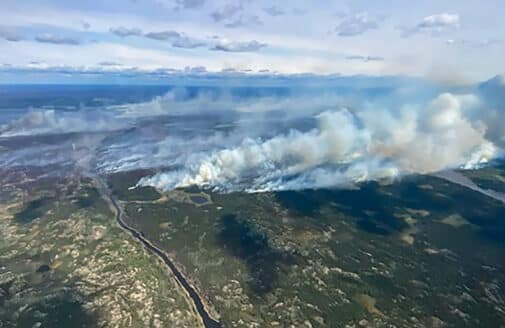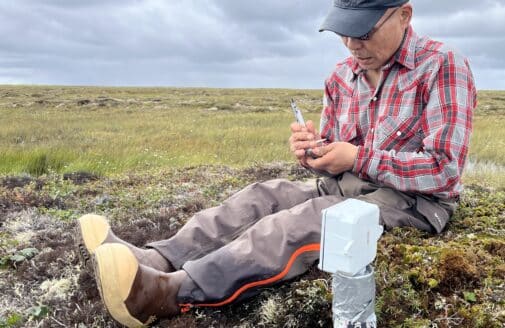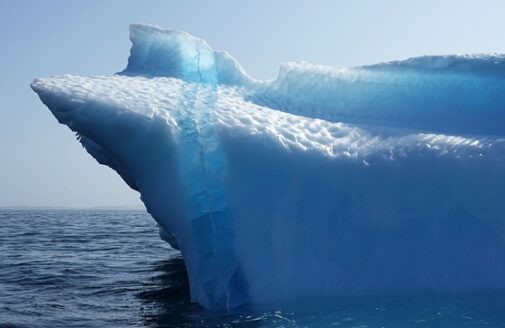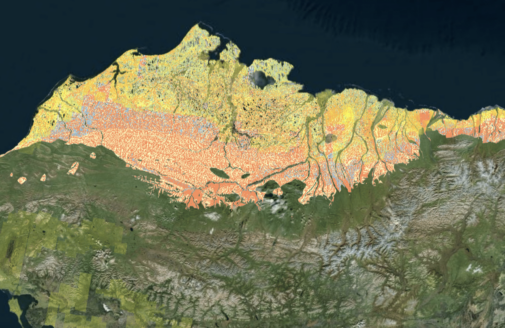Staff profile: Darcy Peter
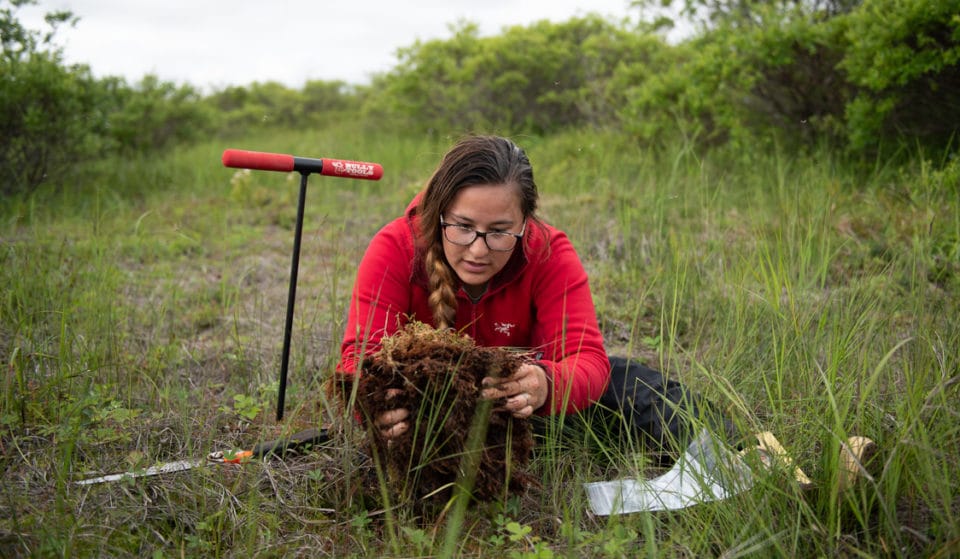
Darcy Peter studies greenhouse gas emissions, permafrost thaw, and Arctic ecology. She is a Gwich’in Athabascan from Beaver, Alaska, located along the Yukon River. Peter has worked for Alaska Native non-profits in environmental science, policy, and social science, and strongly believes in creating relationships that benefit both scientific researchers and Indigenous communities in regions that are studied.
Why did you pursue a career in science?
I pursued a career in science because, growing up in Alaska, I was always outside. Whether it was hunting or fishing with my family or just messing around at the playground, I loved learning about the environment. As I was growing up though, I also realized that everything was changing. I wanted to understand how and why.
What questions does your research aim to answer?
My research primarily focuses on the impact of greenhouse gases on permafrost thaw in Alaska, and understanding the biogeochemical processes that occur as a result. In addition, I look at how these changes in the environment impact the local Indigenous people who rely on the resources we study.
What’s your biggest challenge or obstacle?
I’d say the biggest obstacle thus far has been the relationship building with local Indigenous communities. There is a lack of funding to travel to the area we research to interact and build relationships with people during the off-season. This is something I think is very important, but unfortunately not always logistically possible.
What brought you to Woodwell Climate?
I participated in the Polaris Project in 2017 and 2018, then volunteered in 2019. The Polaris Project has the unique opportunity of training the next generation of Arctic scientists. I feel personally responsible for providing perspectives and helping students learn the life skills that make great researchers, which aren’t often taught in academia.
What makes Woodwell Climate special in the scientific community?
Woodwell Climate is an organization I’ve always admired. The groundbreaking climate change research conducted by respected scientists is certainly impressive, but I see a lot of potential in the freedom of being a non-profit organization. People can research what they want to research—no idea is too radical. The freedom at Woodwell Climate allows for creativity, and people always support your dreams and what interests you.
What’s your favorite climate-related creative work (book, movie, artwork, etc.)?
I think the TV show Down to Earth, featuring Zac Efron, does an incredible job in balancing the horrific realities that places around the world facing the direct impacts of climate change experience, and the positive things countries are doing to combat it. It’s fun, real, terrifying, interesting, and highly educational.




